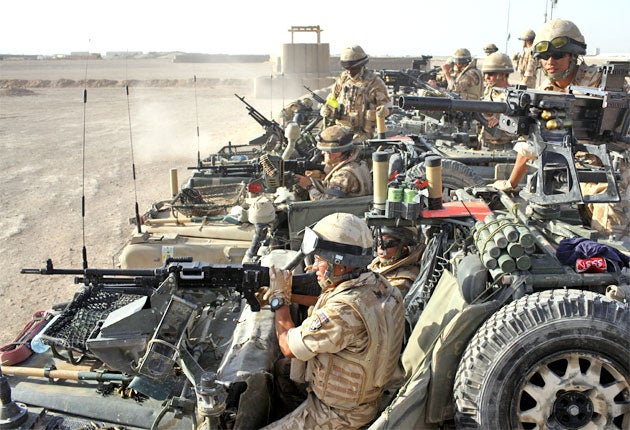The Week In Radio: Where DJs put themselves on the front line

Your support helps us to tell the story
From reproductive rights to climate change to Big Tech, The Independent is on the ground when the story is developing. Whether it's investigating the financials of Elon Musk's pro-Trump PAC or producing our latest documentary, 'The A Word', which shines a light on the American women fighting for reproductive rights, we know how important it is to parse out the facts from the messaging.
At such a critical moment in US history, we need reporters on the ground. Your donation allows us to keep sending journalists to speak to both sides of the story.
The Independent is trusted by Americans across the entire political spectrum. And unlike many other quality news outlets, we choose not to lock Americans out of our reporting and analysis with paywalls. We believe quality journalism should be available to everyone, paid for by those who can afford it.
Your support makes all the difference.Alot of the time, listening to radio in Britain, you could almost forget that we are a nation fighting a foreign war. The conflict in Afghanistan might as well be, in Chamberlain's words, "a quarrel in a faraway country". Television has its wallpaper of brave soldiers in dusty deserts, but radio has found it harder to make a visceral connection with troops. So the Ten Hour Takeover, Radio 1's link-up with the British Forces Broadcasting Service in Camp Bastion, was a great idea. Here was a chance, not just to play requests, but to give a sense of real life on the front line.
And life in Camp Bastion, it emerged, is hot, dusty and uncomfortable. Richard Hatch, the BFBS presenter, cut to the chase. "How do you go to the toilet when you can't stop on convoy?" he wanted to know, and the answer involved far more exposure than could possibly be comfortable. His co-presenter, Jessie Aru, was equally preoccupied by the conditions. Camp Bastion is "very, very hot and dusty. The temperature is 43 degrees, and the wind is so fierce you get sand in your mouth, hair and unmentionable places." BFBS, which links to 20 countries, prides itself on living "cheek by jowl with our audience" and you got a real sense of that when Hatch grabbed an interview with a visiting David Beckham. "Apparently the Taliban were bricking it when they saw all your entourage arriving," he remarked. "They thought it was a new offensive." Beckham, gracious and humorous, delivered a tribute to the bravery of the soldiers, but Hatch had more pressing questions to pursue. What does Beckham call his wife? "I call her Posh. She's down in my phone as Posh."
Being a kind of local radio for the troops, BFBS has quite a different feel from the BBC and a darker, earthier humour. Just occasionally, though, a family message broke through the bonhomie. "They're having such a bad time out there this might go some way towards lifting their spirits," said one forlorn request.
Seventy years ago, by contrast, the nation was glued to the wireless for news of war, yet there was still plenty that went unreported. How the Rest Got Home revealed what happened to those 100,000 who didn't make it back in the flotilla of little ships from Dunkirk. Worst off were the 51st Highland division, who were obliged to stay in France to reassure the French that the British were not cutting and running. "Highlanders paid a necessary price for the greater good" was the official view, but the human cost was terrible. Many were captured and taken across Europe in death marches. Those who were destined for prisoner of war camps remember walking at minus 30 in deep snow, eating a dead horse and being machine-gunned by Americans. The lucky few escaped south to Marseilles where the locals sheltered them in brothels. As with Ten Hour Takeover, it was hearing the voices of the troops that made all the difference. In the words of one magnificent officer who forbade his men from looting a ravaged French town, "We must behave with the utmost decency towards those we leave behind." It was a comment that seemed to encapsulate everything worth fighting for.
As to what kind of future they were fighting for, well, best not answer that. At least not with reference to Steve Punt's Uncool Britannia – 1949-67: The Pakamac Years, a programme which sought to define the Britain of the 1950s via its rainwear. Pakamacs and their uncool cousin, the kagoul, represented something uniquely British, according to Punt. "Audrey Hepburn didn't wear one to whizz around Rome with Gregory Peck and no one in California seemed to see the need for a plastic, foldaway mac," he observed. But then haven't we always known that the coolest thing about Britain is a May bank holiday?
Join our commenting forum
Join thought-provoking conversations, follow other Independent readers and see their replies
Comments